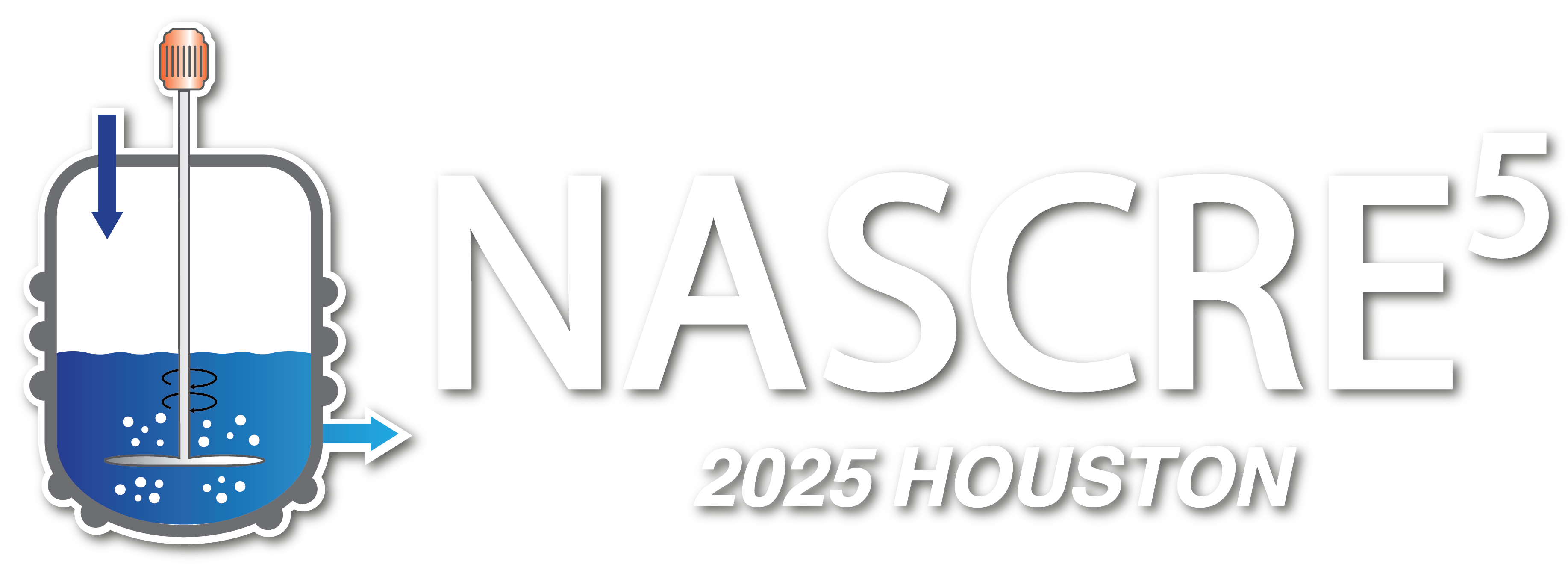Workshops
Instructor(s):
Dan Hickman,
Senior R&D Fellow, Core R&D, Dow
Daniel Trahan,
Research Scientist, Core R&D, Dow
Course Abstract:
In this hands-on workshop, we will introduce the
philosophy and science of chemical reaction engineering simulation and parameter estimation. We will
describe key elements of a model-based approach to data analysis, including methods for validating
important statistical assumptions that undergird the parameter estimation process. The workshop will
include hands-on components with code that we will provide in advance, using AthenaVisual Studio to
illustrate some key concepts. Then, we will provide a workshop example where we will demonstrate the
utility of reactor and kinetic modeling for experimental data analysis, using a real-world trickle bed
scale-up problem. In the workshop, we will use a parameter estimation case study provided in advance to
perform kinetic parameter estimation for three alternative models and use model discrimination to rank
the models. Based on our model-aided analysis, we will identify potential issues with the experimental
data and show how this analysis leads to a better model and, therefore, better understanding of the
physical system. We will also demonstrate statistical evaluation protocols that should be followed
regardless of the modeling tool employed.
We ask students to bring a laptop to the session with at least a trial version of the AthenaVisual
Studio software installed. Because this is not a software training session, we encourage new users to
spend a few hours gaining familiarity with the tool before the workshop. We will provide one or more
tutorials to registered students to guide their independent learning prior to the workshop
Instructor(s):
Alan L. Stottlemyer,
Reaction Engineering, Core R&D, Dow
Presenter(s):
Saurabh Bhandari,
Reaction Engineering, Core R&D, Dow
Course Abstract:
Developed by the Core R&D Reaction Engineering
group of The Dow Chemical Company and designed for chemists and engineers who operate or use data from
laboratory reactors, this course contains fundamental reaction engineering knowledge essential for
generating high quality data from a laboratory scale reactor. The course content includes general
principles and practical tips for designing and operating laboratory reactors. The bulk of the course
content focuses on stirred tank, homogeneous tubular, and fixed bed reactors for a variety of reaction
systems, including homogeneous liquid phase, gas-liquid, gas-solid, liquid-solid, and gas-liquid-solid
systems. At the end of this course, chemists and engineers will have a better understanding of the
critical factors affecting the performance of laboratory scale reactors and the appropriate means for
addressing those factors to maximize the probability of generating quality data. During this course, the
instructors will introduce a publicly available tool for estimating gradients in heterogeneous catalyst
particles and for sizing laboratory fixed bed reactors. This tool is the product of a collaboration
between Dow and Purdue University.
Course Outline:
- Introduction to fundamental concepts and principles
- Stirred tank reactors
- For liquid and gas-liquid systems
- For gas-liquid-solid slurry systems
- Homogeneous tubular reactors
- Fixed bed reactors
- For gas-solid systems
- For gas-liquid-solid systems
Instructor(s):
Sribala Gorugantu, University of Houston
Subhashini Vashisth, Eastman Chemical
Course Abstract:
Aligned with the theme of NASCRE-5, Breaking Barriers for a Sustainable Future, this workshop invites
participants at all career stages—students, postdocs, professors, and industry professionals—to explore
how “Inclusive Innovation” can transform science and engineering fields for a more sustainable world.
Sustainability requires breaking down the social, environmental, and economic barriers posed by global
challenges. As engineers and scientists, our role goes beyond addressing technical problems—it involves
ensuring that our solutions benefit society broadly and equitably. Inclusive innovation redefines how we
address these challenges by integrating diverse perspectives and equitable practices into sustainable
process development. It also calls for a critical assessment of our research, ensuring that marginalized
and underrepresented communities are not overlooked.
Inclusive environments foster psychological safety, where everyone feel comfortable voicing concerns and
ideas without fear of retribution. This openness can lead to better safety practices and quicker
identification of hazards, especially during experiments or group activities.
This workshop emphasizes the importance of diversity, equity, and inclusion—across multi-facets
dimensions—in driving innovation within academia and industry. Collaboration among diverse teams can
challenge biases and work towards solutions with broader impact. Equity ensures fair access to
opportunities and promotes social and environmental justice.
Participants will engage in panel discussions, case studies, and group activities that link inclusion
and equity with chemical reaction engineering. The workshop will begin by addressing biases in research
environments fostering representation and equitable opportunities through a panel discussion. Further,
the participants will explore social and environmental justice aspects of decarbonization, energy
transition, and plastics recycling through group activities and case studies. These discussions will
inspire actionable strategies to drive global sustainability.
Pre-workshop resources:
- Drawing a More Inclusive Future: https://www.aiche.org/resources/publications/cep/2022/march/drawing-more-inclusive-future-breaking-down-gender-biases-workplace
- Implicit Bias and Lack of Diversity Undermine Science: https://www.scientificamerican.com/blog/voices/how-implicit-bias-and-lack-of-diversity-undermine-science/
- Social Consequences of Green Energy: https://www.sciencedirect.com/science/article/pii/S2590332221006552
- Plastic Pollution and Environmental Justice: https://wedocs.unep.org/bitstream/handle/20.500.11822/35417/EJIPP.pdf
- Hydrogen Economy and Geopolitical Dynamics: https://www.sciencedirect.com/science/article/pii/S2214629620302425?via%3Dihub#s0010
Instructor(s):
Gregory Patience, Polytechnique Montreal
Course Abstract:
This workshop will involve a panel discussion from the following three current/former Chief Scientists or Vice President at Fortune 500 companies:
- Shailendra Bordawekar, Vice President, AbbVie
- Jennifer Ward, Chief Scientist, ExxonMobil
- Joseph Powell, former Chief Engineer, Shell
These industrial researchers will each discuss their respective, unique paths to succeeding and making key contributions on the technical ladder industry. Their brief biographical presentations will be followed by a discussion about the skills – both technical and non-technical – and professional habits/attitudes that played a critical role in their success in large research organizations. This workshop is targeted toward graduate students, postdoctoral associates, and early career researchers, and will endow them with a stronger sense of aspects (over and above technical skills) that are critical to successfully embarking on a career on the technical ladder in industry. Students and early career researchers with an interest in industrial careers are strongly encouraged to attend.





